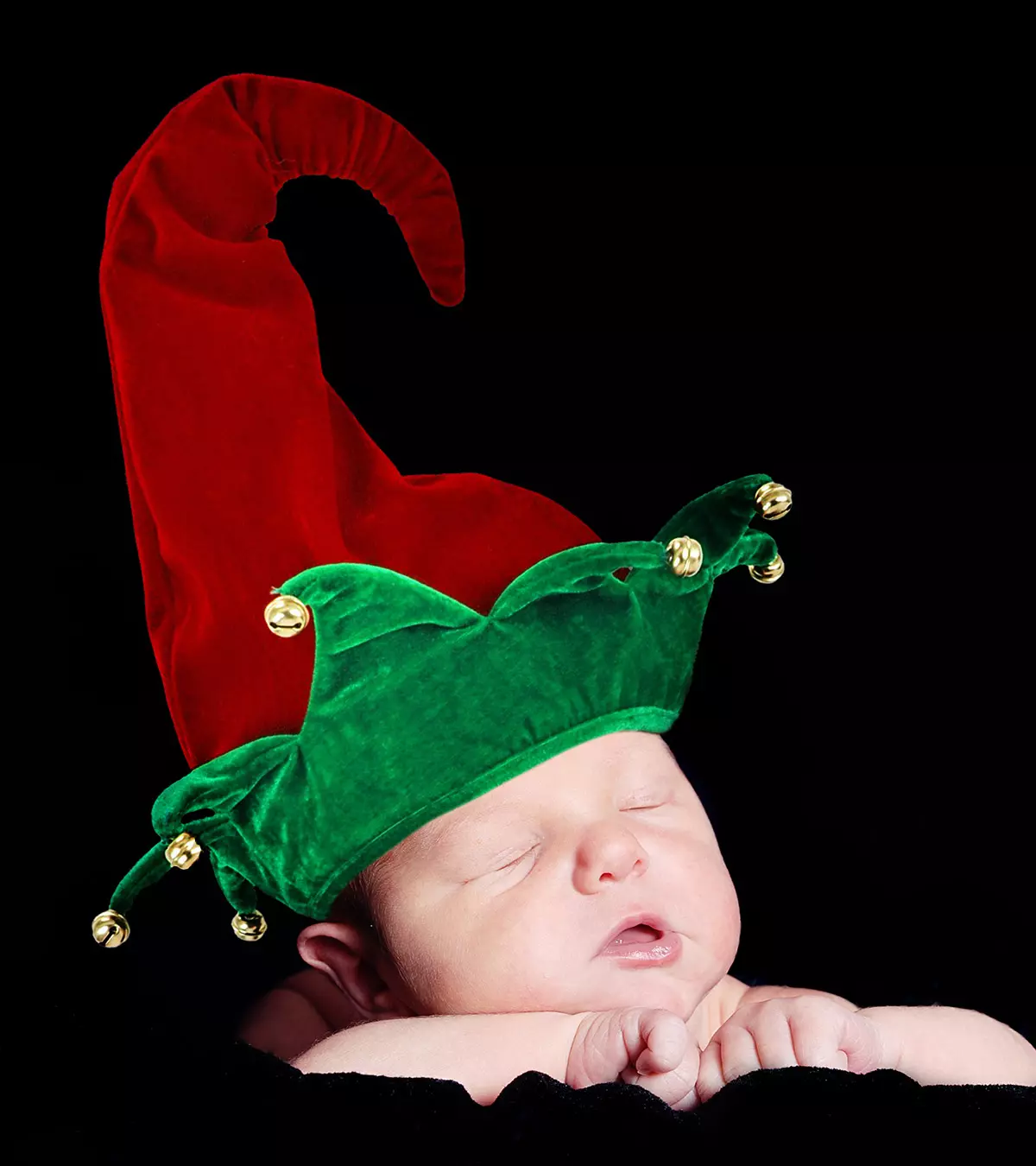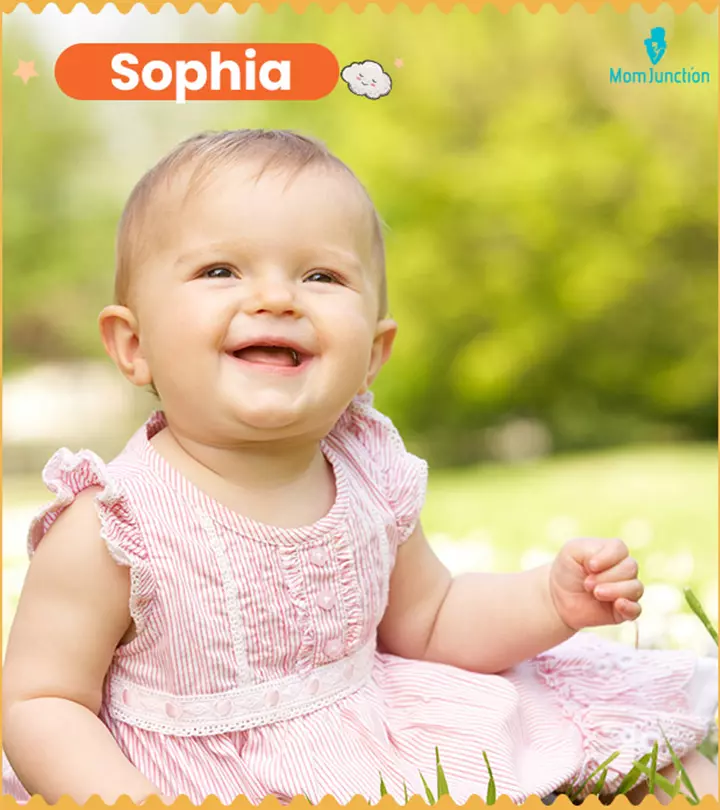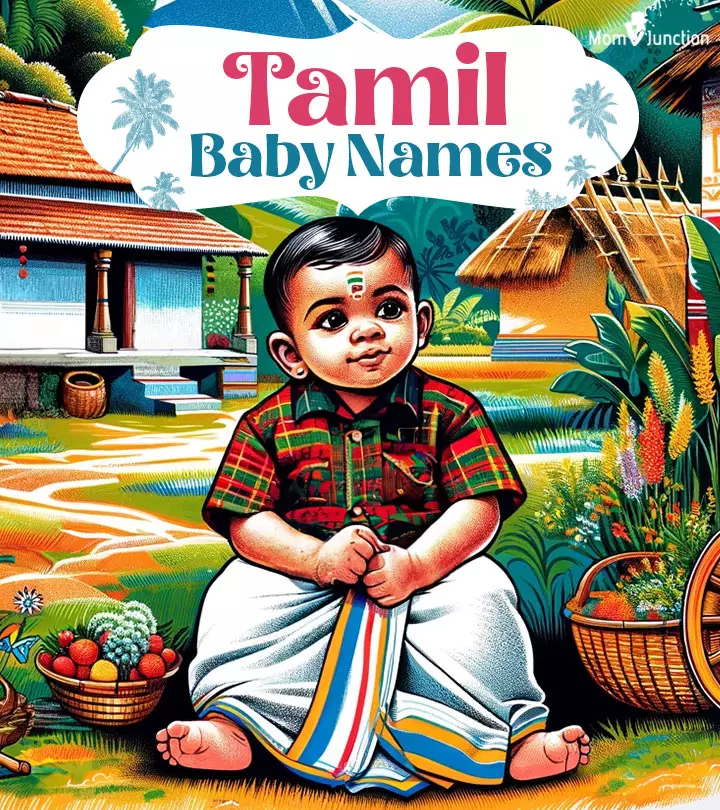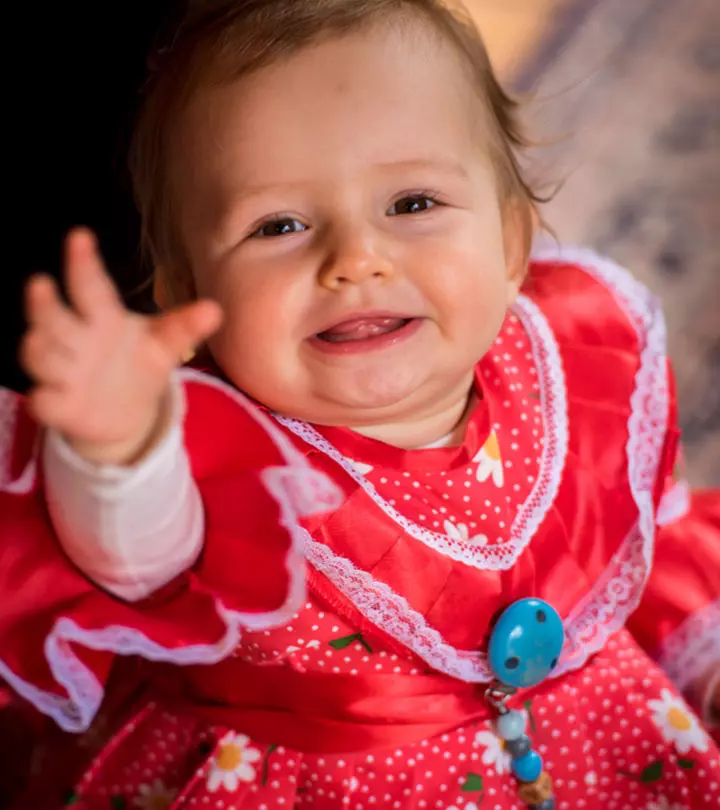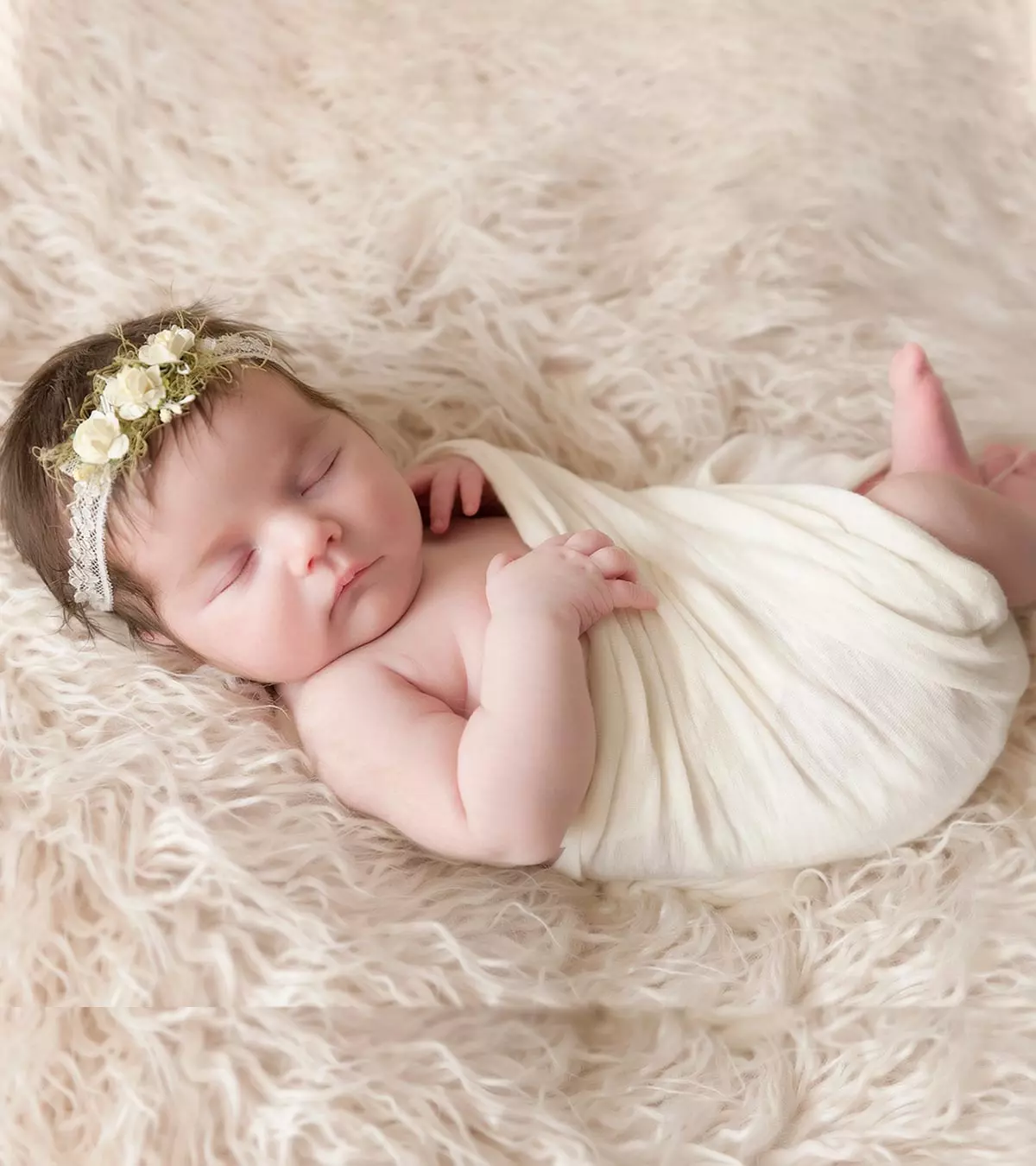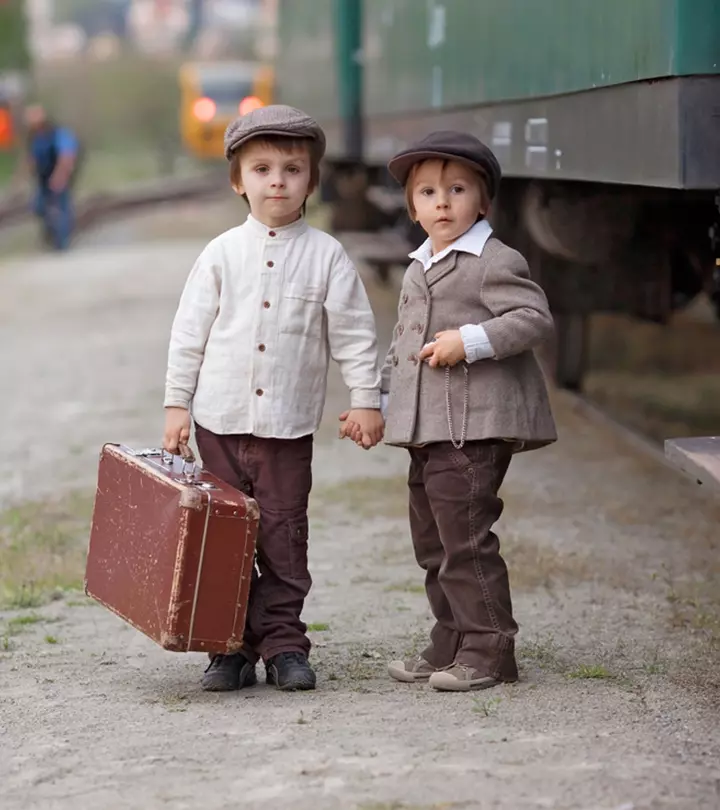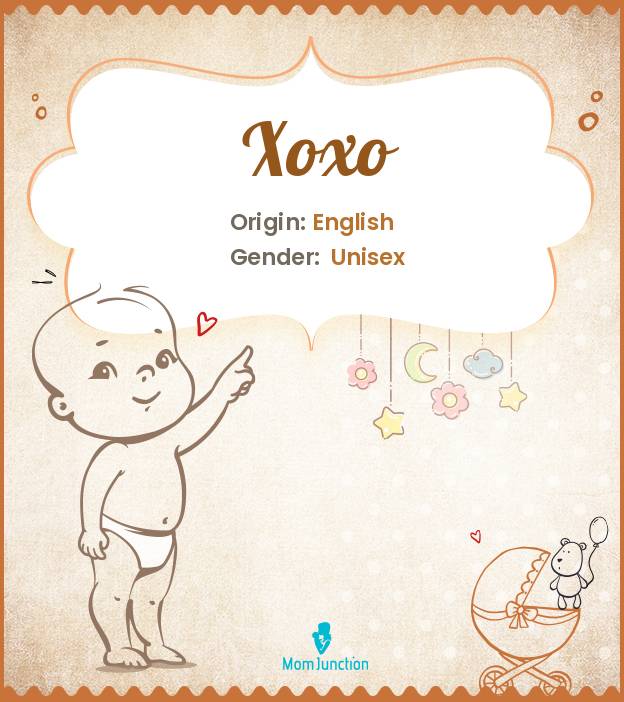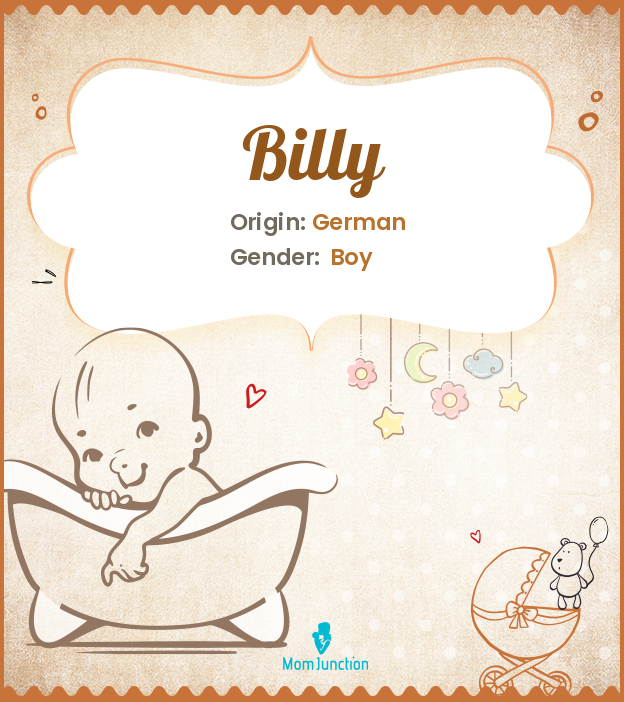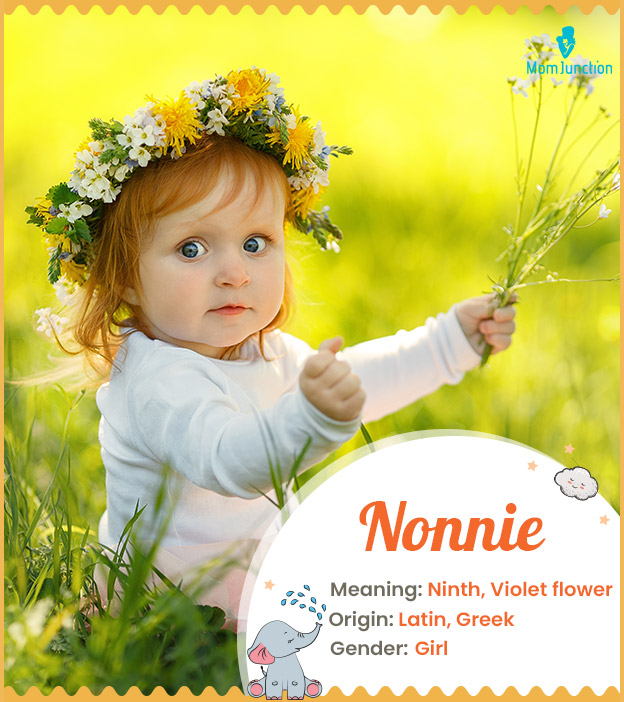247 Icelandic Baby Names With Old Norse Charm
Radiant names make one want to travel to Iceland's vast greenery lands.
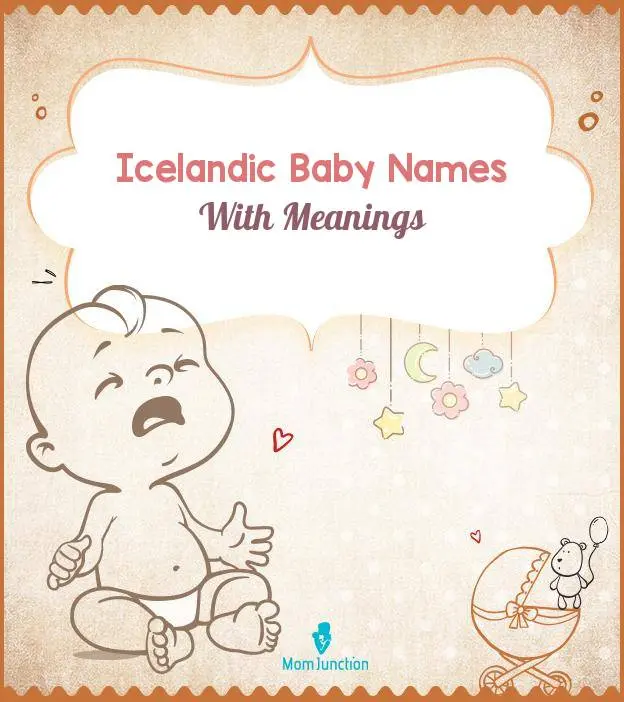
Illustration: MomJunction Design Team
Icelandic baby names mirror the country's rich historical and cultural heritage. Iceland is very strict about baby-naming laws. Parents have to meet certain rules of gender, grammar, and meaning to save the child from embarrassment in the future. Also, the name should contain letters that occur in the Icelandic alphabet. A list of 1853 approved names for girls and 1712 approved for boys is also available. So parents have to select names from the list or seek permission from the special committee if their chosen name is not on the list. The authorities will see if the name is compatible with the Icelandic tradition. The Icelandic Naming Committee, also referred to as the Personal Names Committee in English, is responsible for overseeing an official roster of accepted Icelandic given names. This committee plays a pivotal role in regulating the incorporation of new given names into the Icelandic cultural landscape (1). According to the regulations, an individual can possess a maximum of three personal names followed by a family name. Traditionally, Icelandic names are rooted in Norse mythology. However, many Icelandic names also draw inspiration from Old Norse words and prominent historical figures. Due to the country's conversion to Christianity in the early Middle Ages, Christianity also influences Icelandic names. Hence, many Icelandic names are inspired by saints, biblical names, and Christian virtues and concepts. Even the surnames in Iceland follow an interesting tradition. The surnames are not family names but are patronymic or matronymic. The father's first name becomes the child's last name, along with the suffix -son (for boys) or -dottir (for girls). The law also allows using the parent's name as the last name. If the Icelandic naming system intrigues you and you want to explore Icelandic names, explore the following list. It has several Icelandic names and their meaning to assist you in finding a perfect name for your baby girl or boy.
On This Page
Browse Baby Names By Gender
Browse Baby Names By Alphabet
| Name | Gender | Meaning | |
|---|---|---|---|
|
|
Most holy; Golden life; Noble; Aryan | ||
|
|
Rainbow; Bringer of Joy; Irish flower; Colored part of the eye | ||
|
|
Flock of God | ||
|
|
Lioness of God | ||
|
|
Downy-bearded; Devoted to Jove; Youthful; Juvenile | ||
|
|
Illumination; Light | ||
|
|
Downy-bearded; Devoted to Jove; Youthful; Juvenile | ||
|
|
God is with us | ||
|
|
Lion; Eagle; Brave; Most holy; Sun-like; Visible; Generous; Chief; Superior | ||
|
|
Torch; Shining light | ||
|
|
To open | ||
|
|
Dove; God is gracious | ||
|
|
Favor; Grace; God has favored me | ||
|
|
High; Power; Hill | ||
|
|
Lady | ||
|
|
Exalted; High mountain; Teaching; Singing | ||
|
|
God is gracious | ||
|
|
Holder of the heel; Supplanter; May God protect | ||
|
|
Chaste; Pure | ||
|
|
God is with us | ||
|
|
Victor; Conqueror | ||
|
|
Army of the people | ||
|
|
Lioness of God | ||
|
|
Grace; Favor; Mercy; Unguided | ||
|
|
God's spear; Deer's friend | ||
|
|
Star; Evening star | ||
|
|
Youthful; Jove's child; Downy-bearded; Devoted to Jove | ||
|
|
Freeman; Manly; Army; Warrior | ||
|
|
Best purpose; Ruin; Man; From Hadria; Best; Rainbow; Straightforward | ||
|
|
Clear; Bright; Famous | ||
|
|
Prayer; I want; I love | ||
|
|
Warlike; Fighter; One who lies in a cradle | ||
|
|
Hope; Expectation; Yahweh is gracious; Little | ||
|
|
Lamb; Universal; Happy | ||
|
|
God's gift | ||
|
|
God's protection; God's helmet; Safe; Beautiful vew; Peace | ||
|
|
Peace; From Hadria; Gold; Radiant one | ||
|
|
True; Faith | ||
|
|
One army; One warrior | ||
|
|
Red; Reddish brown; Dawn; Chariot of the Sun; Eagle secret; Successful secret; Morning sun | ||
|
|
Messenger of God; Angel | ||
|
|
Eagle; Power | ||
|
|
God is gracious | ||
|
|
Gentle strength; Brave and strong; A youth employed in religious services; Cornfield; In between; Middle | ||
|
|
Ancestor; Ing is beautiful | ||
|
|
Travel at night; Help | ||
|
|
Friend | ||
|
|
Name of a mythical monster; Fenrir-wolf; Marsh; Fen | ||
|
|
Pale noble woman; Noble; Delicate; Noble fame | ||
|
|
Golden plover; Famous in battle; Laurel; From Laurentum; Ancestor's descendant | ||
|
|
God has judged | ||
|
|
The seeing one; A tale | ||
|
|
God is my salvation | ||
|
|
War; Great-grandmother; Noble | ||
|
|
East; Most holy; Favor; Grace | ||
|
|
An island of sun; Buttercup flower | ||
|
|
Downy-bearded; Devoted to Jove; Youthful; Juvenile | ||
|
|
Tuft of hair; Outspoken man | ||
|
|
Island; Flat land along a coast; Linen | ||
|
|
A jewel; Moon; God is with us | ||
|
|
Golden; Gilded | ||
|
|
Dove | ||
|
|
Happy; Blessed | ||
|
|
New victory | ||
|
|
Messenger | ||
|
|
Country's possessor; Fiery warrior | ||
|
|
Kettle; Cauldron; Helmet | ||
|
|
Well born | ||
|
|
New victory; Twin | ||
|
|
To tie; To bind; To join | ||
|
|
Little father | ||
|
|
Little mother | ||
|
|
God is my judge | ||
|
|
Norse God of weather; Lord | ||
|
|
Farmer; Land worker | ||
|
|
God is gracious | ||
|
|
More; Dawn | ||
|
|
One who is like a swan in the battle; One who fights elegantly | ||
|
|
Eagle goddess; Blooming meadow | ||
|
|
Eagle; Serious; Earnest | ||
|
|
A lady's hair | ||
|
|
Daring; Brave | ||
|
|
Ewe | ||
|
|
Light; To shine; Illuminate | ||
|
|
Lands bordering the northern oceans; Now | ||
|
|
Icelandic form of Tina; River | ||
|
|
A warrior or noble lady | ||
|
|
God is gracious | ||
|
|
Day maid; Powerful; Day; Maiden | ||
|
|
Sand thread; Heathen God; She-bear; Wolf | ||
|
|
Horn | ||
|
|
Girl; Gorgeous; Pretty; Stunning; Chinese plum; Roman goddess of spring | ||
|
|
God | ||
|
|
Happiness; Bliss | ||
|
|
The Sun | ||
|
|
Eagle | ||
|
|
Divine Bear; Divine warrior; Divine man | ||
|
|
Wave; Noble | ||
|
|
Sweet odor; Messenger | ||
|
|
One who comes from Iceland | ||
Exploring the realm of Icelandic baby names is an enthralling voyage that unveils the intricate fabric of a nation's culture. These names, resonating with history, nature, and mythology, encapsulate and celebrate Iceland's essence. From enduring classics that echo the past to innovative choices that embrace modernity, these names reflect a harmonious blend of tradition and innovation. So pick a meaningful name from the above list and give your child a beautiful gift that will keep them connected to Iceland's beauty and heritage.
Frequently Asked Questions
1. What is the meaning of the name Ásta?
The name is a diminutive of Ástríðr and means love and beloved God, formed by a combination of Norse elements.
2. What are some popular Icelandic baby names based on Norse mythology?
Atli, from the old Norse term Attila, is a version of the name in the Völsunga saga for the fictional or Norse mythological character of King Atilla the Hun (2). Bragi, meaning first, foremost, or poetry, is another example of a name from Norse mythology. Bragi is believed to be the God of poetry. Furthermore, the name Eir meaning mercy, also comes from mythological relevance, where she is revered as the Goddess of healing and medicine (3).
3. What are some Icelandic baby names that are inspired by nature?
Some Icelandic baby names inspired by nature are Fjall, meaning ‘from the rough hill,’ Vatn, meaning ‘water,’ and Eldur, meaning ‘fire.’ These names reflect the beauty and natural elements of Iceland’s landscape.
4. What are some Icelandic baby names that have a meaning related to strength or courage?
Names such as Nanna, meaning daring or brave; Eirikur and Greipr, denoting a man of great strength; and Gunnar, meaning a brave warrior encompass the essence of courage and strength.
5. How have Icelandic baby names evolved over time?
The evolution in Icelandic baby names may be seen in the changes in their naming system and rules. Now, first names can be chosen without restrictions based on gender. Also, individuals who are officially recognized as non-binary can use the suffix -bur (“child of”) instead of -son or -dóttir in their names.
References
- The Saga of the Volsungs;
https://sites.pitt.edu/~dash/volsungsaga.html - Michael J. Smith; 2003; Ways of the Ásatrú-Beliefs of the Modern, Northern Heathens;
https://citeseerx.ist.psu.edu/document?repid=rep1&type=pdf&doi=b431ec01829fc480c805a3e99636dd52ff798444 - What’s In A Name?
https://kenan.ethics.duke.edu/whats-in-a-name/
Infographic: Attractive Icelandic Baby Names With Old Norse Charm
Icelandic Baby Names With Old Norse Charm are significant and exquisite. They carry an inherent sense of charm that's almost impossible to ignore. Our infographic below shares several options that fit diverse cultural and linguistic backgrounds. Explore the list and pick a name that resonates with you. Remember, your baby's name is integral to their identity, so choose a name that best complements their personality.

Illustration: Momjunction Design Team
Look Up For Many More Names
Do you have a name in mind and want to know more about it? Or want to find names belonging to a particular origin, religion, or having a specific meaning? Use our search tool below to explore more baby names with different combinations.

Community Experiences
Join the conversation and become a part of our nurturing community! Share your stories, experiences, and insights to connect with fellow parents.
Read full bio of Nisha Bharatan
Read full bio of Rebecca Malachi
Read full bio of Trisha Chakraborty





